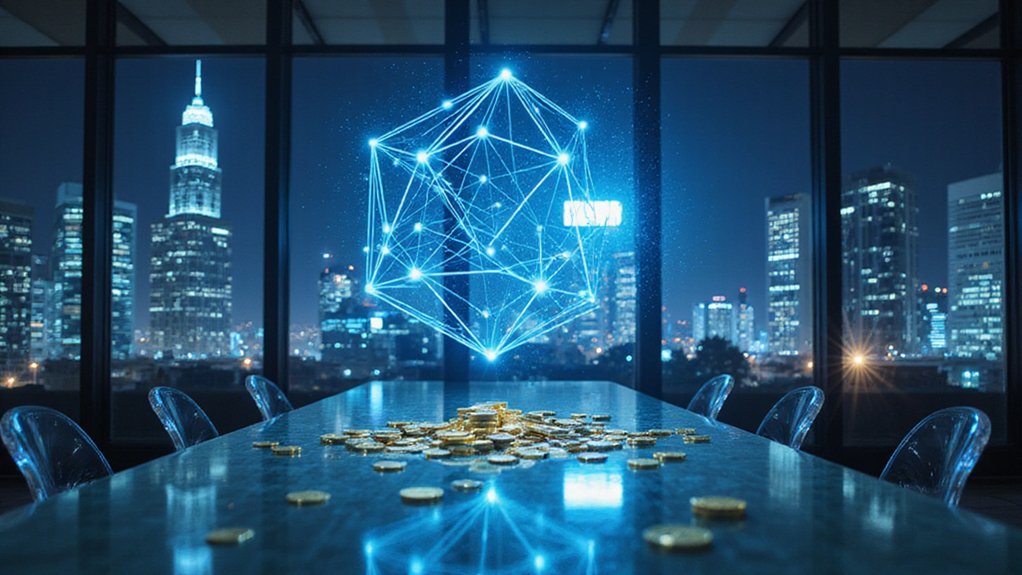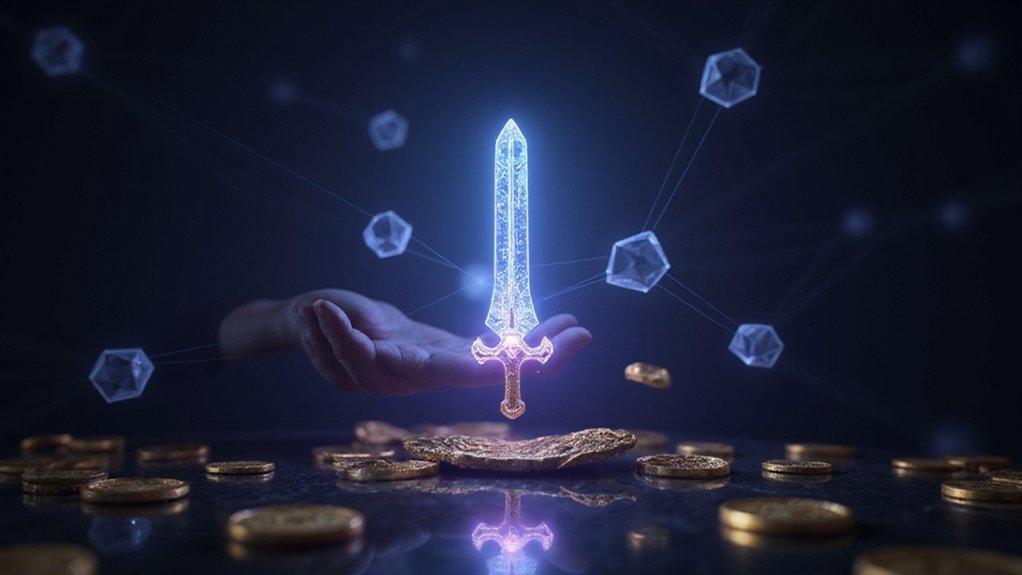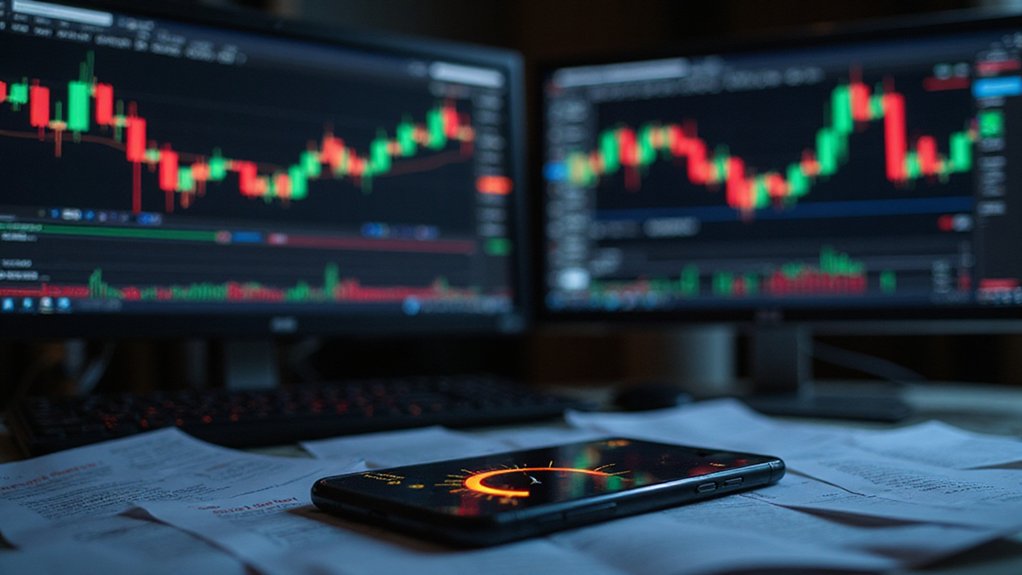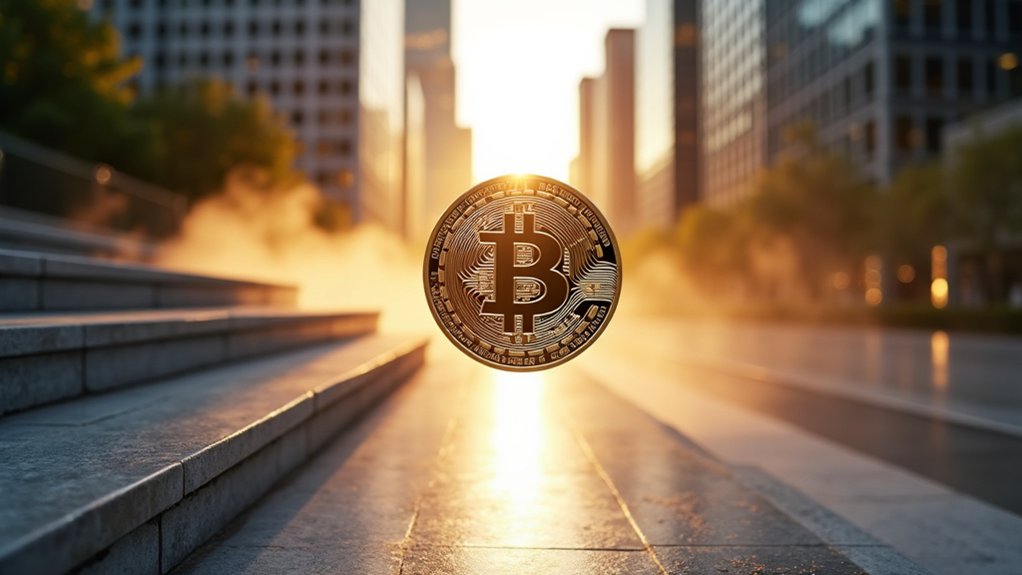A Decentralized Autonomous Organization (DAO) operates as a blockchain-based entity governed entirely by smart contracts rather than human managers, executing predetermined rules through algorithmic precision. Token holders participate in governance through voting mechanisms that correlate with their stake ownership, creating plutocratic decision-making structures. These organizations eliminate intermediaries, automate execution to reduce human error, and maintain transparent, immutable records across networks like Ethereum and Polygon—though their experimental nature reveals fascinating intersections between technology and human unpredictability.

In the ever-expanding universe of blockchain innovation—where traditional organizational structures are routinely dismantled and rebuilt with algorithmic precision—the decentralized autonomous organization (DAO) represents perhaps the most audacious attempt to eliminate human management entirely. These entities operate without central authority, using blockchain technology to enforce rules and manage operations through smart contracts that automate decision-making processes with the cold efficiency of mathematical certainty.
A DAO functions as a community-governed entity where stakeholders share common goals and operate under predetermined rules encoded in smart contracts. The blockchain foundation provides transparent, immutable records of all transactions and decisions, creating an open-source environment where community oversight theoretically prevents the usual corporate shenanigans. Voting rights typically correlate with stake ownership, establishing a plutocratic governance model that would make Aristotle proud (or horrified, depending on one’s perspective).
Democracy through tokens, where mathematical consensus replaces boardroom politics—though whether this constitutes progress or plutocracy remains delightfully ambiguous.
The advantages are compelling enough to attract serious capital: no intermediaries siphoning fees, automated execution eliminating human error and bias, global accessibility transcending traditional jurisdictional boundaries, and rapid deployment without bureaucratic red tape.
DAOs can be established quickly, incentivizing participation through token rewards while maintaining treasuries that require member approval for access—a democratic approach to capital allocation that occasionally works as intended. The sequential blocks of blockchain data enhance security by making organizational records immutable and resistant to manipulation. Many DAOs now operate across multiple blockchain networks such as Ethereum, Polygon, and Arbitrum to maximize accessibility and reduce transaction costs.
The operational mechanism centers on proposal submission and voting protocols, where consensus determines collective decisions. Token issuance serves dual purposes: governance participation and economic incentivization. Security emerges from blockchain’s immutable nature and community participation, creating resilience against external manipulation while maintaining transparency through public record-keeping.
ConstitutionDAO exemplifies the model’s potential, rapidly raising millions to purchase historical artifacts—though ultimately failing in its mission, it demonstrated remarkable capital attraction capabilities. The decentralized finance sector has embraced DAOs extensively, leveraging their automated governance for protocol management and treasury oversight. While Wyoming recognized DAOs as legal entities in July 2021, the legal status of most DAOs remains murky across different jurisdictions.
Despite theoretical elegance, DAOs remain experimental entities where coded governance meets human nature’s unpredictability. Smart contracts provide tamper-proof execution, yet the quality of decisions depends entirely on stakeholder participation and wisdom—variables that no algorithm can guarantee. The promise of truly autonomous organizations continues evolving as blockchain technology matures and governance mechanisms become more sophisticated.
Frequently Asked Questions
How Do I Create My Own DAO?
Creating one’s own DAO requires four fundamental steps: defining organizational purpose and governance structure, designing tokenomics with clear incentive mechanisms, building community engagement through strategic marketing, and deploying smart contracts via platforms like Aragon or DAOstack.
The process demands careful consideration of voting thresholds, token distribution models, and stakeholder alignment—though whether most creators adequately contemplate the complexities of decentralized governance remains questionable.
What Are the Legal Risks of Participating in a DAO?
DAO participants face considerable legal exposure, from personal liability for organizational actions to securities violations and market manipulation charges.
The regulatory landscape remains frustratingly unclear—members might find themselves personally responsible for decisions they barely influenced.
Governance participation paradoxically increases risk exposure, while the absence of legal entity status offers little protection.
Recent precedents suggest courts will hold participants accountable regardless of their actual involvement level.
Can DAOS Be Shut Down by Governments?
Government shutdown of DAOs remains theoretically possible but practically elusive—authorities can target exchanges, prosecute individuals, and pressure infrastructure providers, yet no complete DAO termination has occurred.
The decentralized architecture creates jurisdictional nightmares (nodes scattered globally, code executing autonomously) that confound traditional regulatory approaches.
While governments wield considerable influence over peripheral services and participants, the core question persists: how does one “turn off” something designed to resist centralized control?
How Much Does It Cost to Join a DAO?
DAO membership costs vary dramatically—from free participation in many organizations to OBADA’s rather steep $6,500 annual fee (plus a $15 bank charge, naturally).
Most DAOs operate without membership fees, instead requiring token ownership for governance participation.
Payment methods often restrict to wire transfers or ACH, limiting accessibility.
While some organizations justify premium pricing through exclusive resources, the majority embrace decentralization’s democratic ideals through barrier-free entry.
What Happens if a DAO Gets Hacked?
When a DAO suffers a hack, the financial carnage can be spectacular—witness the infamous 2016 incident that vaporized $50 million in Ether.
The decentralized governance structure that makes DAOs revolutionary becomes their Achilles’ heel during crisis response, as emergency decisions require consensus from scattered token holders rather than swift executive action.
Recovery demands freezing assets, patching smart contract vulnerabilities, and somehow rebuilding investor confidence.









